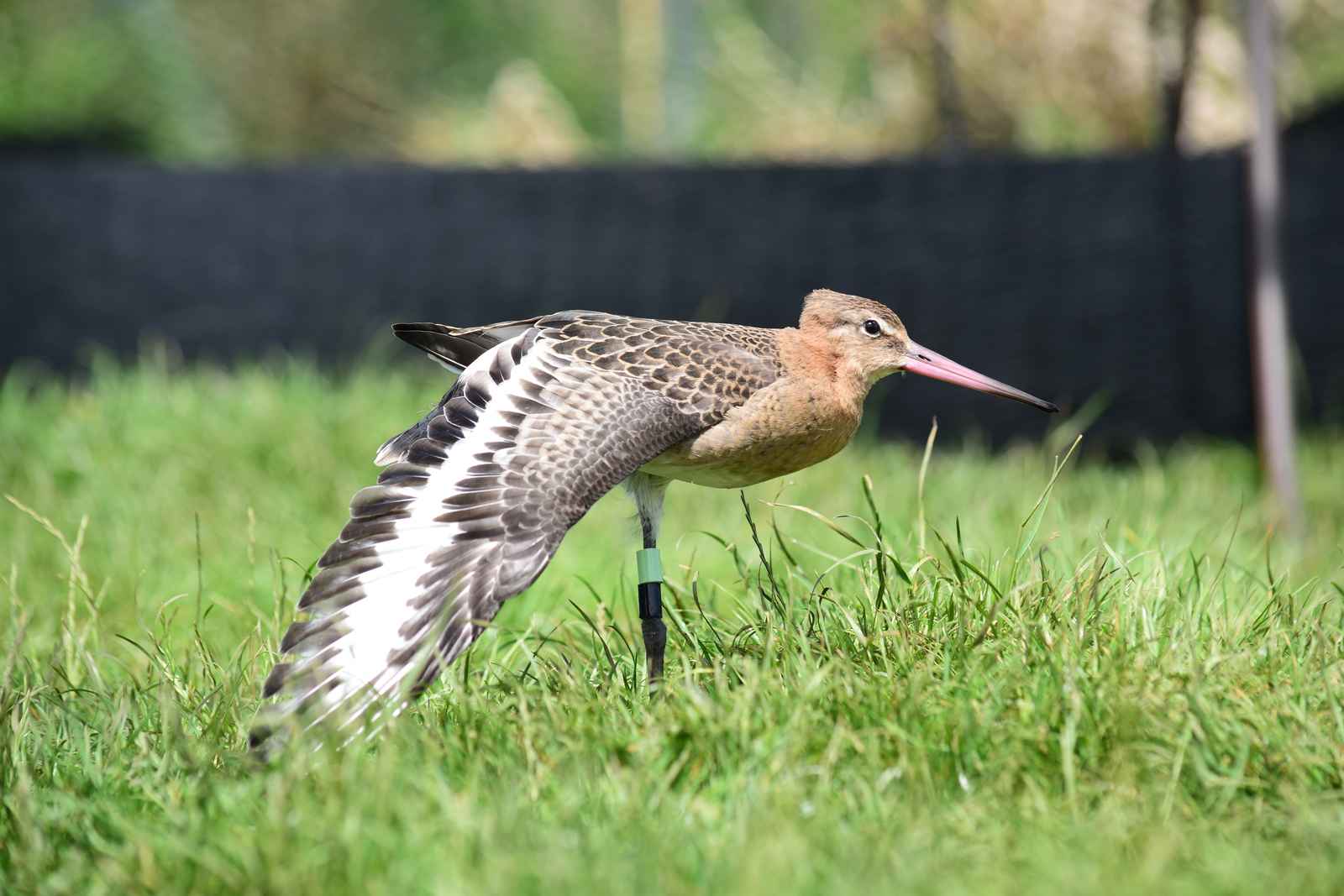Rescuing rare birds: The black-tailed godwit conservation effort

The black-tailed godwit, a critically endangered wading bird in the UK, has been given a new chance at survival thanks to the Wildfowl and Wetlands Trust (WWT) and its dedicated team, including PGCert in Ecological Survey Techniques alumna, Georgina Jarman (pictured above). Godwit Futures is the conservation technique of head starting by Natural England. Headstarting involves collecting eggs from godwit nests, incubating them and then rearing the chicks in a biosecure, protected environment to vastly increase their survival odds. Then, the birds are released into the wild on the Fens, with the aim to bolster the wild population.
Georgina Jarman, a Conservation Breeding Officer at WWT Welney, has been at the forefront of this life-saving project. ‘I am assisting with all avicultural aspects of headstarting with Godwit Futures, from egg collection and incubation to early-stage rearing and release. This project is critical in establishing the world’s first conservation breeding facility for a Limosa species under licence from Natural England.’
A new lifeline for black-tailed godwits
The Godwit Futures project's success is crucial, as, without these efforts, there would likely be no black-tailed godwit chicks fledging in the UK this year. William Costa, Project Manager and Lead Aviculturist at WWT, highlights the importance of this work: ‘This rescued generation of black-tailed godwits will be crucial to helping the species remain as a breeding bird in the UK.’ This year, a minimum of 20 black-tailed godwits will be released, a significant number when you consider that there are only around 50 breeding pairs currently in the UK.
Georgina's journey to this role began after she completed the PGCert in 2023. Balancing her studies with full-time work as an Aviculture Assistant at WWT Slimbridge, she gained essential knowledge and skills that have been instrumental in her career path. 'I was able to complete the EST over a two-year period. The flexibility of the program allowed me to develop my practical skills as well as my research and academic simultaneously.'
Beyond godwits: Broader conservation efforts
In addition to her work with the godwits, Georgina is involved in other vital conservation projects. In Norfolk, she participates in overnight surveys to locate corncrake (Crex crex) breeding territories on the Ouse Washes. She also contributes to the husbandry of the corncrake captive breeding and release programme, a partnership between WWT, Pensthorpe Conservation Trust, Natural England, ZSL, and RSPB.
‘Being part of these projects has been incredibly rewarding. The hands-on experience and the opportunity to work with such dedicated teams have been invaluable,’ Georgina remarks.
Looking to the future
As the Godwit Futures 2024 season nears its end, Georgina will soon begin her new role as a UK Conservation Officer with the Bristol Zoological Society where she will be involved in delivering their white-clawed crayfish reintroduction program.
Georgina's journey from a PGCert student to a frontline conservationist emphasises the impact of combining rigorous academic programmes with practical experience. ‘In the future, I hope to use my husbandry experience and survey skills gained through my PGCert to continue supporting species recovery projects in the UK,’ she says. Georgina exemplifies how commitment and education can drive significant progress in wildlife conservation, providing hope for endangered species like the black-tailed godwit.
Learn more:
- PGCert in Ecological Survey Techniques
- BBC article about Godwit Futures
- Connect with Georgina on LinkedIn
Image credits: *Egg collection at WWT Welney under licence from Natural England
Published 17 July 2024

